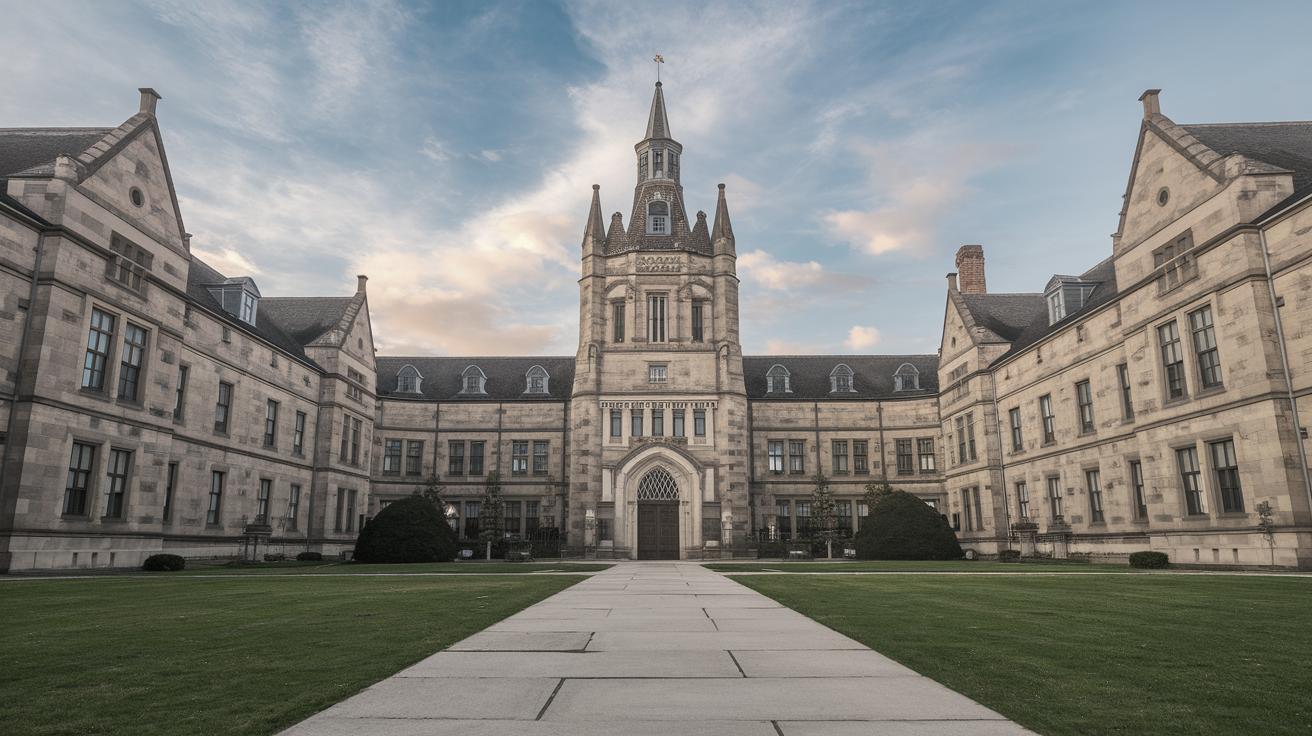What Should You Consider When Choosing a University
Choosing a university might seem like an overwhelming decision, one that can shape your future trajectory in numerous ways. As you embark on this journey, it’s essential to take a holistic approach. Consider factors like academics, campus culture, location, and finances that can impact your overall university experience. Peer into what lies beyond the classroom and think about how a university can prepare you for your future career. This blog post delves into various aspects you should contemplate while selecting a university, offering insights and guidance to make an informed choice. Let’s explore these key elements and navigate this pivotal life decision together.
Academics
Academic offerings should be your primary consideration when choosing a university. Start by researching the available programs and majors to ensure they align with your career aspirations and academic interests. Not all universities are equal in every field of study; some may have renowned departments or specialized faculty in your area of interest. Evaluate the curriculum and teaching methodologies to see if they match your learning style and ambitions.
Furthermore, consider the university’s resources, such as libraries, research labs, and learning centers, which can greatly enhance your educational experience. Small class sizes and access to academic advisors can also contribute to a more personalized learning environment. Look at the university’s accreditation status, as this can impact your degree’s recognition and value in the professional world.
Location
The location of a university can significantly affect your daily life and overall experience. Urban campuses often provide cultural diversity, networking opportunities, and access to internships, but they may come with a higher cost of living. Conversely, rural or suburban campuses might offer a quieter, more relaxed atmosphere, with potential savings on living expenses.
Consider the climate and geographical location too, and think about whether you prefer a four-season climate or year-round sunshine. The proximity to family and friends may also influence your choice, depending on how independent you wish to be during your studies. Additionally, explore the local community and consider how it aligns with your lifestyle and interests.
Campus Look and Feel
The campus atmosphere can have a profound impact on your overall university experience. Are you drawn to an institution with historic architecture and a traditional look, or do you prefer a modern, state-of-the-art environment? Visiting the campus in person, if possible, or taking virtual tours can help you get a feel for the campus vibe and determine whether it resonates with you.
Examine the student culture and extracurricular activities available, as these elements greatly contribute to campus life. A vibrant, inclusive campus community can enhance your social experience and provide ample opportunities for personal growth. Observe how students interact with each other and faculty, and consider whether you can see yourself thriving in that environment.
Where to Live
Deciding on where to live during your university years is crucial, as it sets the tone for your day-to-day life. Many universities offer on-campus housing options, providing convenience and the chance to immerse yourself in campus culture. Consider the amenities, room styles, and cost of living when evaluating your options.
If you prefer more independence, off-campus housing might be more suitable. Research the local rental market, transportation options, and accessibility to campus. Living arrangements can significantly impact your university experience, making it important to choose a housing solution that provides comfort and meets your needs.
Food: It’s Important!
No university experience is complete without considering your dining options. Evaluate the dining facilities available on campus, including cafeterias, food courts, and meal plans, to determine if they meet your dietary preferences and requirements. The availability of diverse and nutritious options can positively influence your health and well-being.
In addition to on-campus dining, explore the local culinary scene to see what off-campus options are available. Food is a crucial part of your daily routine, and having access to a variety of cuisines and dining experiences can enrich your university life. Remember, a happy student often correlates with a satisfied stomach!
Finances
Financial considerations are paramount when selecting a university. Assess the total cost of attendance, including tuition, fees, housing, and living expenses. Investigate available scholarships, financial aid, and work-study opportunities to lessen the financial burden.
It’s prudent to compare costs across different institutions, weighing them against the value and opportunities each university presents. Remember that financial planning is an investment in your future, and balancing costs with the quality of education and experiences is key.
Beyond the Classroom
A holistic university education goes beyond lectures and exams. Investigate the extracurricular activities, clubs, and organizations offered by the university, as these can provide invaluable life skills and foster connections. A vibrant campus life with diverse opportunities can enhance your personal and professional development.
Moreover, consider the university’s support services, such as career counseling, mental health resources, and tutoring centers, which are vital in promoting student success and well-being. Engaging in activities beyond the classroom can lead to a more enriching and balanced university experience.
How to Get Around Town
Transportation plays a critical role in shaping your university experience, affecting your mobility and access to different areas. Assess the transportation options available, such as public transit, campus shuttles, cycling paths, and parking facilities, ensuring they align with your commuting needs.
A well-connected campus can offer convenience and ease of access, while also contributing to a sustainable lifestyle. Analyze whether the university and surrounding areas are pedestrian-friendly, and if there’s support for alternative transportation modes like car-sharing or ride-hailing services.
Career Success
Your choice of university can greatly impact your career trajectory and opportunities. Research the university’s connections with industry partners, internship programs, and job placement rates. A strong alumni network and robust career services can provide valuable support throughout your professional journey.
Consider the presence of career-focused centers, mentorship programs, and career fairs, as these resources can help you gain relevant experience and secure employment post-graduation. Choose a university that aligns with your career goals and can act as a launchpad for your future success.
Related Articles
How to Find the University That’s Right for You
Exploring various university options may seem overwhelming, but focusing on your priorities and future goals can streamline the decision-making process. Consider factors such as personal interests, academic aspirations, and lifestyle preferences to determine what aligns best with your needs.
Ultimate Guide to Choosing a University
This comprehensive guide offers step-by-step advice on research strategies, evaluating campus culture, and understanding financial commitments, all of which are vital in making an informed decision about your university education.
What Makes Waterloo Different?
The University of Waterloo stands out with its innovation-focused programs, co-op opportunities, and dynamic campus community. Discover what sets Waterloo apart and why it might be the ideal choice for students seeking a thriving academic and professional environment.
| Considerations | Description |
|---|---|
| Academics | Evaluate program offerings, faculty expertise, and learning resources. |
| Location | Assess urban versus rural settings and community alignment with interests. |
| Campus Look and Feel | Consider campus architecture, student culture, and facility offerings. |
| Where to Live | Decide between on-campus and off-campus living options. |
| Food | Evaluate dining facilities and local culinary scene for dietary satisfaction. |
| Finances | Analyze total costs and explore financial aid opportunities. |
| Beyond the Classroom | Research extracurriculars, support services, and campus activities. |
| Transportation | Examine transportation avenues for accessible commuting. |
| Career Success | Investigate career resources and industry connections. |


